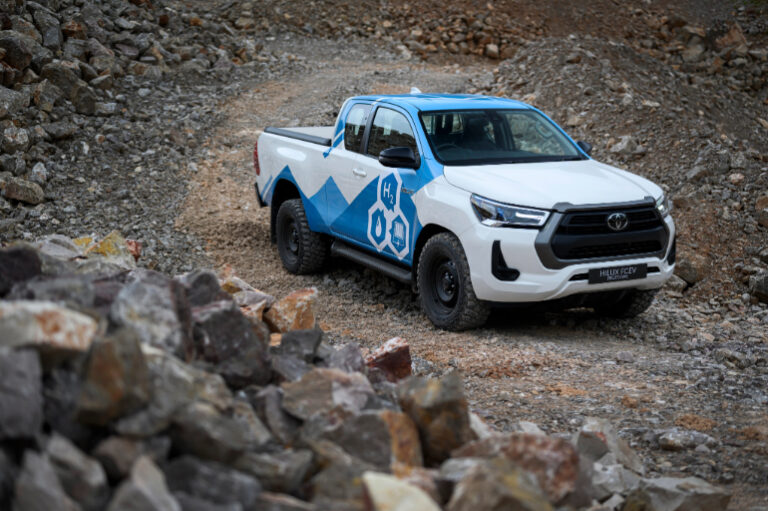Toyota has confirmed its long-running hydrogen fuel cell HiLux trial, being undertaken in the UK, is in its final phase with 10 working prototypes being field tested.
The groundbreaking project has been running since 2022, with the first working prototype rolling off the production line in September 2023, supported by funding from the UK Government.
Alongside consortium partners Ricardo, ETL, D2H Advanced Technologies and Thatcham Research, Toyota developed and assembled the prototypes at its Derbyshire production facility – which produces Corolla s and other commercial models.
A total of 10 hydrogen fuel cell HiLux prototypes have been built, with five now being used for “rigorous field testing to assess safety, performance, functionality, and durability, generating test drive data in real-world situations”.
The remaining five vehicles are being used for media and customer demonstrations, and two will be used at the upcoming Olympic and Paralympic games in Paris this year.
According to Toyota, the prototypes share the HiLux extra-cab platform dimensions but a fuel cell sits above the front axle and three hydrogen tanks have been integrated within the chassis rails. An electric motor on the rear axle is fed by the tray-mounted battery, sending 134kW/300Nm to the rear wheels, offering a driving range of 600km before refuelling.
The hydrogen fuel cell components have been borrowed from the Mirai, Toyota’s first fuel cell vehicle launched in 2015, now in its second generation and proven to offer real-world practicality. In fact, the Mirai is already available “in limited numbers” in Australia, for fleet customers to lease.
Toyota has not confirmed what will become of the prototype vehicles once testing is completed, however a dual-cab version was reportedly revealed in Thailand earlier this year which borrowed technology from the UK prototype.






